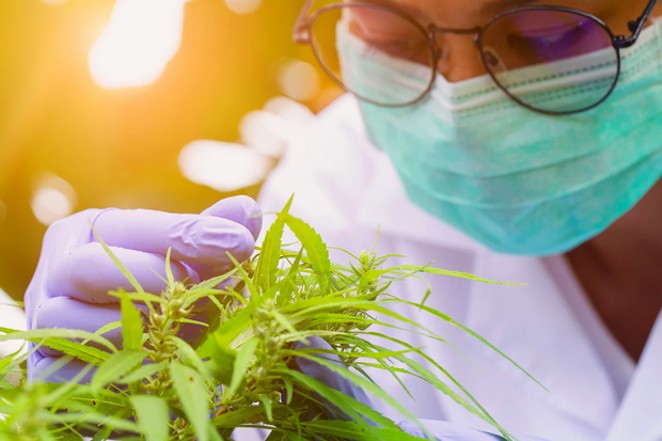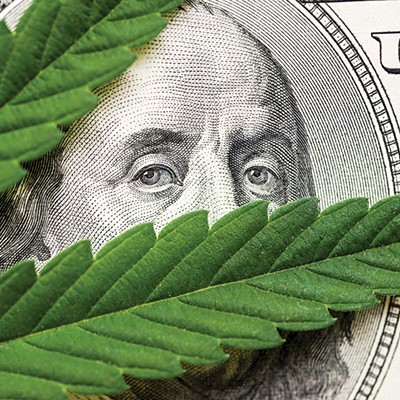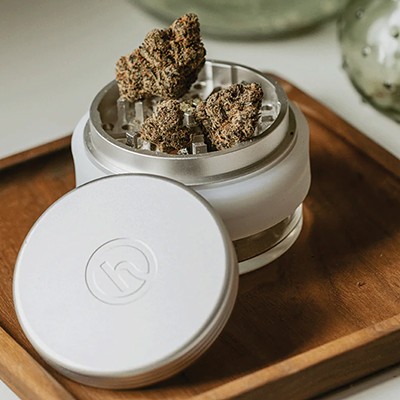The goals of the Black Lives Matter movement go far beyond addressing the relationship police have with the Black community. (Spoiler: It's really, really...not good...y'all.) It also seeks to address the manner in which the United States treats Black people on a number of other fronts.
Three of those fronts have multiple intersections: cannabis, the medical industry and law enforcement.
As history and studies show, the Black community receives unequal treatment for cannabis arrests and prosecutions, and with medical care. These disparities are amplified by long-standing fears, beliefs and resistance in the Black community to both cannabis, and in many cases, doctors.
The War on Drugs successfully demonized cannabis, creating unique challenges in presenting medical cannabis to Black/BIPOC communities as being valid and with benefit, and not just "an excuse to get high." (Not that one ever needs an excuse, mind you. And "Being a BIPOC in the U.S." should be a qualifying condition for a medical marijuana card in any state.)
The classification of cannabis as a Schedule 1 drug by the Feds has created roadblocks and confusion for the medical industry as well, leaving practitioners without clear guidelines and resources for medical use.
So while cannabis could be used in the treatment of numerous health conditions in BIPOC communities—save for a common mistrust of it, and the often-white doctors recommending it—there is a knowledge deficiency within the medical community itself regarding medical use.
But aside from that...
Helping sort this out is the recently launched Association for Cannabis Health Equity and Medicine, or ACHEM ("Ay-Chem"), a first-of-its-kind professional association which "pledges to dismantle health inequities in medical cannabis, and improve health education and access for communities of color."
They seek to "Enrich, Promote, Participate, and Serve" BIPOC communities by providing competency training and educational resources to both new, and established, health care practitioners in cannabinoid medicine. That includes endocannabinology, which explores the role the human endocannabinoid system plays in our health.
“If we can train more health care providers that look like us, explaining the science and the physiology and the benefits to our people, I think they will receive it better.”—Dr. Rachel Knox
tweet this
ACHEM was co-founded by four Black women doctors: Dr. Janice Knox, Dr. Rachel Knox, Dr. Jessica Knox and Dr. Ogadmina Obie.
Board member Dr. Kaya speaks of "goals of creating a healthier Black community and bringing wellness to people through natural health care...through cannabis."
"Cannabis facilitates healing and relief, as well as financial health," she writes. "That financial well-being can be used to decrease health access issues, food insecurities, inadequate housing, educational inequities, and opportunity disparities, which all contribute to a person's overall wellness."
Dr. Rachel Knox began studying the endocannabinoid system and cannabis medicine in 2015, and along with her sister and parents, form the "First Family of Cannabinoid Medicine." All are MDs and Endocannabinologists—and through their website, events and Portland-based American Cannabinoid Clinics—work with both patients and other medical professionals.
Knox believes ACHEM can achieve great things through helping to educate and support Black and Brown health care practitioners.
"(It's) going to be very important for us to train clinicians and providers that look like us, so we can change some of those old staunch beliefs in our community," Dr. Janice Knox told The Daytona Times last month. "I can tell you that when a Black patient saw my face, you could almost taste the relief that they had when I walked into the room. It's a matter of trust.
"If we can train more health care providers that look like us, explaining the science and the physiology and the benefits to our people, I think they will receive it better."
But the health of the individual is attached to the health of a community. Through ACHEM, Dr. Rachel Knox speaks to the numerous benefits cannabis can provide on a number of interconnected levels.
"With an equity-centered, science-informed industry, cannabis medicine can become a tremendous force for good. Education, advocacy, regulation and access can support restoration within communities suffering from years of systemic injustice, opening up tremendous possibilities for advancement. By focusing on BIPOC health practitioners, ACHEM is empowering people of color to be change agents in our own communities."
Find the Association for Cannabis Health Equity and Medicine at achemed.org.





















